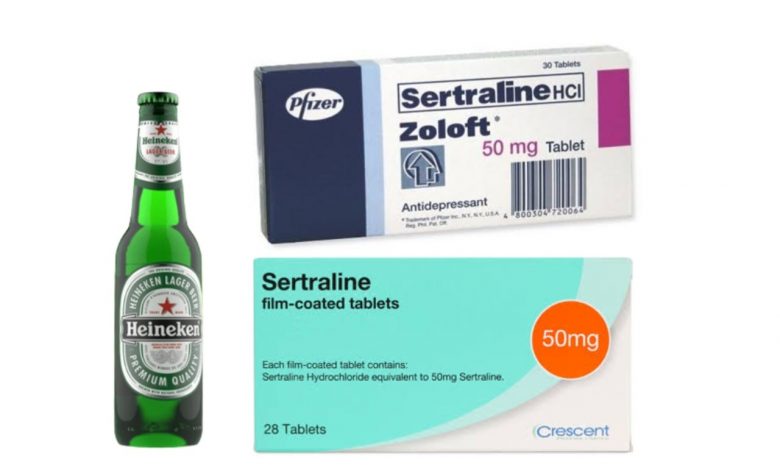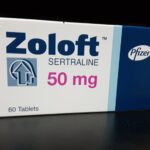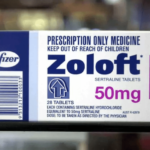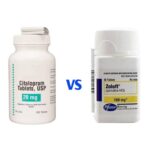Can I Take Sertraline and Alcohol?

Throughout the 10,000 or so years that humans have been drinking fermented beverages, they’ve also been arguing about their merits and demerits. The debate still simmers today, with a lively back-and-forth over whether alcohol is good for you or bad for you.
It’s safe to say that alcohol is both a tonic and a poison. The difference lies mostly in the dose. Moderate drinking seems to be good for the heart and circulatory system and probably protects against type 2 diabetes and gallstones. Heavy drinking is a major cause of preventable death in most countries. In the U.S., alcohol is implicated in about half of fatal traffic accidents. Heavy drinking can damage the liver and heart, harm an unborn child, increase the chances of developing breast and some other cancers, contribute to depression and violence, and interfere with relationships.
Even in small amounts, alcohol may intensify medication side effects such as sleepiness, drowsiness, and light-headedness, which may interfere with your concentration and ability to operate machinery or drive a vehicle, and lead to serious or even fatal accidents.
Because alcohol can adversely interact with hundreds of commonly used medications, it’s important to observe warning labels and ask your doctor or pharmacist if it’s safe to use alcohol with any medications and herbal remedies that you take.
What is sertraline?
Sertraline, also known by the brand name Zoloft is an antidepressant of the selective serotonin reuptake inhibitor class.
It was introduced to the market by Pfizer in 1991. Sertraline is primarily used to treat clinical depression in adult outpatients as well as obsessive-compulsive, panic, and social anxiety disorders in both adults and children. The efficacy of sertraline for depression is similar to that of other antidepressants, and the differences are mostly confined to side effects.
How it works
Sertraline belongs to a class of drugs called selective serotonin reuptake inhibitors (SSRIs). A class of drugs is a group of medications that work in a similar way. These drugs are often used to treat similar conditions.
This drug works by increasing the amount of serotonin, a natural substance in your brain, that helps maintain mental health balance. This can improve the symptoms of depression and anxiety.
How should I take Sertraline?
Sertraline comes as a tablet and a concentrate (liquid) to take by mouth. It is usually taken once daily in the morning or evening. To treat a premenstrual dysphoric disorder, sertraline is taken once a day, either every day of the month or on certain days of the month. Take sertraline at around the same time every day. The typical starting dose of sertraline (Zoloft) is 25 mg to 50 mg once daily.
Follow the directions on your prescription label carefully, and ask your doctor or pharmacist to explain any part you do not understand. Take sertraline exactly as directed. Do not take more or less of it or take it more often than prescribed by your doctor.
Sertraline concentrate must be diluted before use. Immediately before taking it, use the provided dropper to remove the amount of concentrate your doctor has told you to take. Mix the concentrate with 4 ounces (1/2 cup [120 milliliters]) of water, ginger ale, lemon or lime soda, lemonade, or orange juice. After mixing, the diluted solution may be hazy; this is normal. Do not mix the concentrate with any liquids other than the ones listed. Drink the diluted solution immediately.
Your doctor may start you on a low dose of sertraline and gradually increase your dose, not more than once a week.
It may take a few weeks or longer before you feel the full benefit of sertraline. Continue to take sertraline even if you feel well. Do not stop taking sertraline without talking to your doctor. If you suddenly stop taking sertraline, you may experience withdrawal symptoms such as nausea, sweating, depression, mood changes, frenzied or abnormally excited mood, irritability, anxiety, confusion, dizziness, headache, tiredness, seizures, ringing in the ears, numbness or tingling in the arms, legs, hands, or feet, difficulty falling asleep or staying asleep.
Can I take sertraline and alcohol?
No, do not drink alcohol or consume products containing alcohol while taking sertraline because it can affect the way the medication works and increase the risk of unwanted side effects such as dizziness, drowsiness, and loss of coordination.
In addition, do not take these drugs with sertraline (Zoloft). When they are used with sertraline, they can cause dangerous effects on your body. These drugs include:
- Linezolid, intravenous methylene blue. Taking this drug with sertraline increases your risk for serotonin syndrome.
- Monoamine oxidase inhibitors (MAOIs) such as isocarboxazid, phenelzine, and tranylcypromine. Taking these drugs with sertraline increases your risk for serotonin syndrome. You must also wait 14 days between taking these drugs and taking sertraline.
- Pimozide. Taking this drug with sertraline can cause serious heart problems.
Interactions that increase the risk of side effects
Taking certain medications with sertraline may result in increased side effects. These drugs include:
- Nonsteroidal anti-inflammatory drugs (NSAIDs) such as ibuprofen, naproxen, aspirin, and warfarin. Taking these drugs with sertraline increases your risk of bleeding or bruising.
- Triptans such as sumatriptan. Your risk for serotonin syndrome is increased when you take these drugs with sertraline. Your doctor should watch you closely if you take these drugs together.
- Lithium. Taking this drug with lithium increases your risk for serotonin syndrome.
- Serotonergic medications such as fentanyl, tramadol, and St John’s wort. Taking these drugs with sertraline increases your risk for serotonin syndrome.
- Cimetidine. Taking cimetidine with sertraline may cause a buildup of sertraline in your body. Your dose of sertraline might need to be lowered if you take it with cimetidine.
- Tricyclic antidepressants such as amitriptyline, desipramine, and imipramine. Taking sertraline with these drugs may cause these drugs to build up in your body. Your doctor may need to adjust your dosage of tricyclic antidepressants while you take sertraline.
Sertraline Side effects
Sertraline may cause side effects. Tell your doctor if any of these symptoms are severe or do not go away:
- constipation
- diarrhea
- difficulty falling asleep or staying asleep
- dizziness
- dry mouth
- excessive sweating
- excessive tiredness
- headache
- heartburn
- loss of appetite
- nausea
- nervousness
- sexual problems in females; decreased sex drive, delayed orgasm, or unable to have an orgasm
- sexual problems in males; decreased sex drive, inability to get or keep an erection, or delayed or absent ejaculation
- uncontrollable shaking of a part of the body
- vomiting
- weight changes
Some side effects can be serious. If you experience any of the following symptoms, call your doctor immediately:
- abnormal bleeding or bruising
- agitation, hallucinations, fever, sweating, confusion, fast heartbeat, shivering, severe muscle stiffness or twitching, loss of coordination, nausea, vomiting, or diarrhea
- difficulty breathing
- headache, weakness, unsteadiness, confusion, or memory problems
- hives
- rash
- seizures
- swelling
Sertraline may decrease appetite and cause weight loss in children. Your child’s doctor will watch his or her growth carefully. Talk to your child’s doctor if you have concerns about your child’s growth or weight while he or she is taking this medication. Talk to your child’s doctor about the risks of giving sertraline to your child.
Sertraline may cause other side effects. Call your doctor if you have any unusual problems while taking this medication.
If you experience a serious side effect, you or your doctor may send a report to the Food and Drug Administration’s (FDA) MedWatch Adverse Event Reporting program online (http://www.fda.gov/Safety/MedWatch) or by phone (1-800-332-1088).





